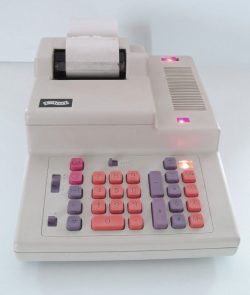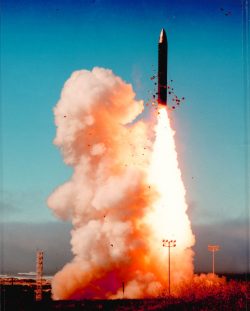ICM or “Independent Chip Model” is a term that will inevitably cross your way if you’re a poker tournament player. In this article, we want to explain in detail what ICM means in poker and what this model is used for.
What is a chip worth in a poker tournament?
The background to ICM is a very simple question: What is a chip worth in a poker tournament?
For a poker player in a tournament, it is important to know how much his chips are worth at each moment. The specific question is: How much prize money can a player expect to win with his chips in the long run?
How much is it worth doubling your stack, how catastrophic is it to lose half your stack? Such questions are essential for a tournament player. But the special nature of poker tournaments doesn’t make it easy to answer those questions. Having twice as many chips doesn’t mean you will win twice as much in the long run.
Often it’s more important to simply survive the bubble with a few chips than to have slightly more chips. Just by looking at the number of chips you have, you can’t tell exactly how well you’re doing in a tournament. You also need to know what these chips are worth.
Measuring the value of chips
Let’s examine the question “What is a chip worth in a poker tournament?” using an example:
Example Tournament
- Buy-In: $10
- Players: 10
- Payouts: 1. $50, 2. $30, 3. $20
- Initial stack: 1,000 chips
If every player gets 1,000 chips at the beginning, they are worth exactly 10 dollars before the first hand is dealt (we just ignore rake to make things easier). But as the game progresses, the value of these chips changes and 1,000 chips can be worth a lot more and a lot less than $10.
- Chips can be worth more: Let’s say a specific player barely makes it through to the last three and still has only 1,000 chips, while his two opponents each have 4,500 chips. Then these 1,000 chips are obviously worth at least 20 dollars because the prize money for third place is guaranteed. Even if a player made it to the last three with just one chip, that single chip would still be worth $20 – so the value of the chips can increase drastically during the tournament.
- Chips can be worth less: At the same time, the value of chips can also decrease: Whoever wins the Sit-And-Go at the end will have all 10,000 chips, but will only receive $50 prize money. So his chips will only have a value of $5 per 1,000 chips.
For a long time, there were different models that tried to explain how much a chip is actually worth. In the excellent, albeit rather theoretical book Mathematics of Poker, various methods of assigning a definite monetary value to tournament chips were discussed. In the end, the “Independent Chip Model”, or ICM for short, prevailed.
How does the ICM work?
The ICM considers the stacks of all players remaining in the tournament and the payout structure. With this information, the ICM algorithm calculates the expected value for each remaining player. This algorithm is rather difficult, we give a brief explanation.
Here’s how the ICM algorithm works:
- Probability of finishing first: First the stack sizes are used to calculate the probability for each player to finish first. The model simply assumes that a player with X percent of all the chips also wins the tournament in X percent of all cases.
- Probability of finishing second, third, etc.: Then, in a similar way, the model calculates for each player how likely it is that he will come second, third, fourth, etc. However, these calculations are much more complicated. The probability that a player will finish second place is calculated by looking at all cases in which the player does not win. Then the stack of the winner is removed and the probability that the player will finish second is determined by the proportion of his chips to the remaining chips and all the probabilities weighted are added together. The same procedure is used for the other places.
- Expected Values: In the end, the model multiplies the probabilities for each player’s finish distribution with the payouts, adds them together and gives an expected value for each player.
You can’t do such calculations in your head, because for 4 players you already need dozens of arithmetic steps. But fortunately, there are a lot of ICM calculators online. For example, try our advanced ICM Deal Calculator.
ICM in tournaments using an example
Let’s take the above example tournament again:
Example Tournament
- Buy-In: $10
- Players: 10
- Payouts: 1. $50, 2. $30, 3. $20
- Initial stack: 1,000 chips
Suppose there are still 4 players in the tournament and those are the chip counts:
Chip counts of the last 4 players
- Player 1: 5,000 chips
- Player 2: 2,000 chips
- Player 3: 2,000 chips
- Player 4: 1,000 chips
What are these chips worth according to the ICM model? We simply enter the data into an ICM calculator and obtain the following result:
ICM value of these stacks
- Player 1: 5,000 chips ≅ $37.18
- Player 2: 2,000 chips ≅ $24.33
- Player 3: 2,000 chips ≅ $24.33
- Player 4: 1,000 chips ≅ $14.17
This means that if all players are equally good, they will win those amounts of prize money in the long run. Player 1, with half of all chips, can expect much more than the prize money for second place, players 2 and 3 can expect a little more than the prize money for third place and even player 4, who has the fewest chips, can expect to win some prize money in the long run.
Making decisions with the help of ICM?
How can ICM help to make meaningful decisions in tournaments? Let’s go back to our example.
For the sake of simplicity, we will pretend that there are no blinds and examine a specific tournament situation:
Example situation in a tournament
- Player 1: BU – 5,000 chips
- Player 2: SB – 2,000 chips
- Player 3 (Hero): BB – 2,000 chips – holds A♥9♦
- Player 4: UTG – 1,000 chips
Action: Player 4 folds, player 1 folds, player 2 goes all-in (2,000 chips), player 3 … ?
Player 3 is exposed to an all-in and what should he do now? Let’s say he knows his opponent, player 2, very well and estimates that he bluffs quite often and only sometimes has a better hand. Overall, player 3 expects to win the showdown in 60 percent of all cases when he calls.
So should he call the all-in?
Three things can happen now:
- 1. Player 3 folds (all chip stacks remain the same).
- 2. Player 3 calls and wins (player 3 now has 4,000 chips, player 2 is out).
- 3. Player 3 calls and loses (player 2 now has 4,000 chips, player 3 is out).
For each of these potential chip constellations we can calculate the ICM expectation:
ICM expectations after fold and ICM expectations after call
| Player | Chips (Player 3 folds) | EV | Chips (Player 3 calls and wins) | EV | Chips (Player 3 calls and loses) | EV |
| Player 1 | 5.000 | $37,2 | 5.000 | $38,9 | 5.000 | $38,9 |
| Player 2 | 2.000 | $24,3 | 0 | $0 | 4.000 | $36,4 |
| Player 3 | 2.000 | $24,3 | 4.000 | $36,4 | 0 | $0 |
| Player 4 | 1.000 | $14,2 | 1.000 | $24,7 | 1.000 | $24,7 |
The table shows, if player 3 calls and wins, his 4,000 chips have an expected value of $36.44. But if he calls and loses, he has no more chips and his expected value for the tournament is $0.
Since player 3 can estimate how often he wins the showdown (60 percent), you can simply calculate his expected value for a call:
EV = 60% * $36.44 + 40% * $0 = $21.86
On average, a call is worth $21.86. If Player 3 folds, however, his chips have an expected value of $24.33 – around $2.47 more.
This means: in this specific example situation, the ICM advises a fold although the player has on average a much better hand than his opponent.
Why is a fold better in this situation when the player is the clear favorite in the hand?
Simply put: the short stack, player 4, is to blame. For player 3, it is much more profitable to wait for him to bust, rather than endangering all his chips. If player 3 simply waits, he will most likely at least secure the prize money for third place, but if player 3 gets involved in an all-in, there is a very real chance that he will be eliminated without a payout.
The ICM takes this into account and advises him to fold.
Quick ICM Poker tips
Now you can’t just do such ICM calculations at the table, but there are numerous ICM trainers on the net which can help you play through such scenarios using example situations. Here are a few tips on how to play correctly according to ICM:
- Call tighter: The ICM always advises that you should call tighter in tournaments than in cash games.
- More chips, less value: According to ICM, the first chip you have is always the most valuable. Doubling the stack is always less than twice as valuable.
- Impact before the bubble: The ICM has the strongest impact just before the bubble and around prize money jumps in the tournament.
- Avoid narrow All-Ins: According to the ICM, you should avoid narrow All-Ins when there are players with fewer chips in the tournament.
- Caution with medium-sized stacks: Coinflips or All-Ins where you are only a narrow favorite should be avoided with a medium-sized stack before or at the bubble and you should prefer to fold.
- Play recklessly as the big stack: Players with large stacks should very often threaten players with medium stacks with All-Ins because according to ICM they can only call with very few hands.
- Threaten tight players: If the opponents have an understanding of ICM (or generally play very tightly), you should threaten them with All-Ins particularly frequently.
- Leave loose players alone: If the opponents do not have an understanding of ICM (or call very loose in general), you should also play much tighter yourself.
The Limits of ICM in Poker
The Independent Chip Model is currently the best-known method for accurately measuring the value of chips in poker tournaments. But ICM is also not free of disadvantages. Some of these are:
- No position: The ICM does not consider a player’s position (a 4 big blind stack on the button is generally worth much more than a 4 big blind stack in first position).
- No skill: The ICM does not consider the players’ skills.
- No future: The ICM does not take into account possible future developments (sometimes it is better to avoid a narrowly profitable situation since better ones might open up later).
Very often ICM is used when calculating deals in tournaments because it is the fairest model to give the stacks of the players a concrete value. So if you ever get into the situation of wanting to negotiate a deal in a tournament, an ICM calculator is recommended.
Relevant Resources
 Advanced ICM Calculator
Advanced ICM Calculator  Introduction to ICM Poker (Upswing Poker)
Introduction to ICM Poker (Upswing Poker) Mathematics of Poker (Amazon)
Mathematics of Poker (Amazon) Ben Sulsky, Quick ICM Intro (Run It Once Video)
Ben Sulsky, Quick ICM Intro (Run It Once Video)



